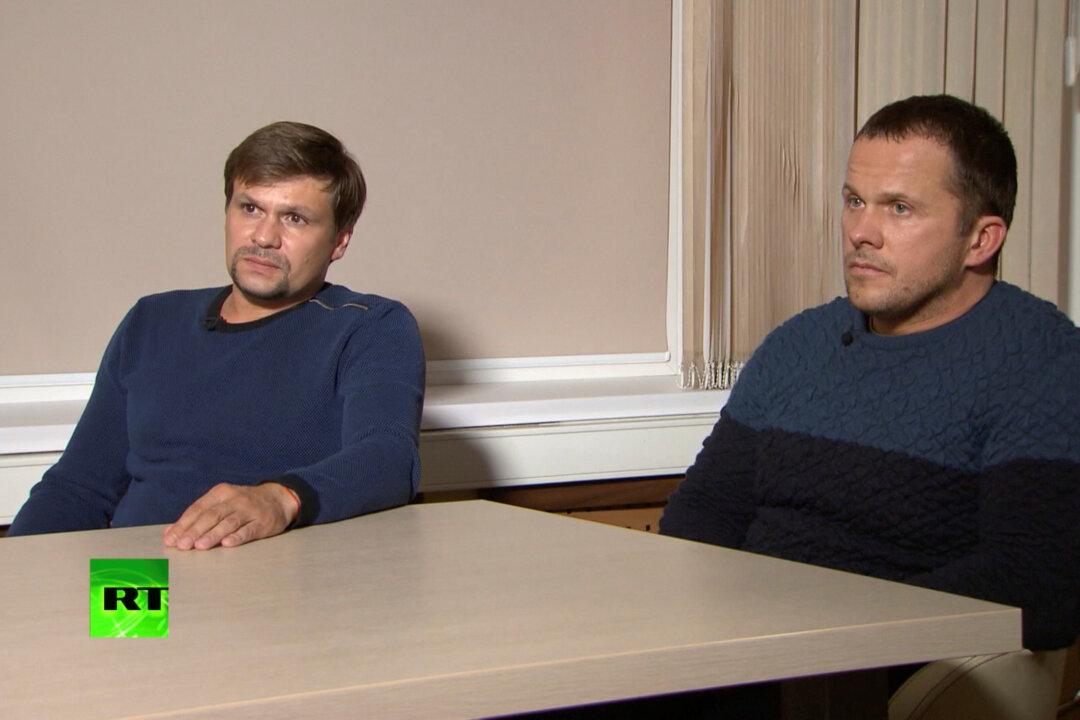LONDON—The second suspect in the UK nerve agent poisoning case has been named as military doctor Alexander Mishkin.
The investigative reporting website Bellingcat identified Mishkin, 39, and said he worked for Russia’s GRU intelligence service.

LONDON—The second suspect in the UK nerve agent poisoning case has been named as military doctor Alexander Mishkin.